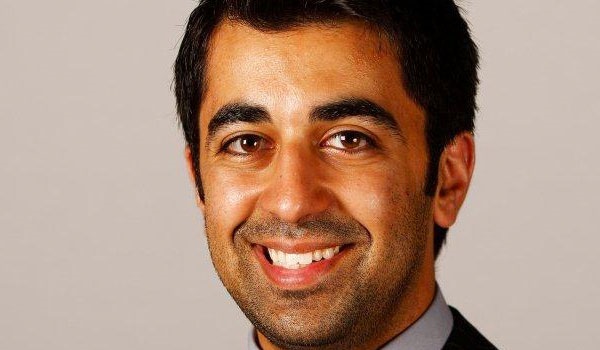Threat from organised crime increasing as gangs exploit new opportunities
New crime types are unlikely to emerge over the next few years despite a rise in the threat posed by organised offending, according to the National Crime Agency’s (NCA) annual assessment.
Research released by the NCA on Sunday (May 13) found organised crime now affects UK citizens more than any other national threat.
Criminal activity is being aided by encrypted communication and dark web marketplaces that allow them to maximise their reach overseas – opening up new opportunities in modern slavery and drug trafficking.
However, the NCA believes that excluding new crime types created by new legislation, completely new forms of serious and organised offending will probably not appear before 2023.
Instead, it claims existing crime will operate in new ways through the growing abuse of technology and globalisation – and called on law enforcement to start thinking differently about how it responds.
Director General Lynne Owens said: “The increasing sophistication of crime groups, coupled with the changing nature of their geographical reach, demonstrates more than ever the requirement for an increasingly co-ordinated response.
“Working alongside our law enforcement, intelligence and other partners, we are changing the way we operate to ensure the biggest possible impact.
“We will use this intelligence assessment to build on our operational successes and evidence why further investment in capabilities and capacity is necessary.”
The NCA report suggests there are 4,629 organised crime groups (OCGs) operating across the UK today, and that the threat they pose is increasing.
These gangs are adopting new ways of working, partially due to global and regional instability, with the EU referendum vote just one example of a factor that will present them with new opportunities.
The organisation predicts that events that might have previously seemed unimportant to law enforcement could soon need to be viewed in terms of their implications for organised crime.
It found the scale of modern slavery and human trafficking in the UK continues to rise with a growing proportion of victims claiming to have been exploited before they arrived in the country.
The NCA believes this may be due to developing risk in so-called ‘transit countries’, mostly situated in North Africa.
If immigration falls after the UK leaves the European Union, the number of people exploited into trafficking may increase even further.
Another key trend mentioned in the report is the impact of technology.
The NCA found technological developments will continue to lower the barrier for entry to certain cyber-enabled crimes, such fraud and creating child sexual abuse images, enabling more people to get involved.
These advancements include 5G wireless systems, artificial intelligence and the internet of things – all of which the NCA believes could significantly disrupt the technology landscape and present criminals with new opportunities.
OCGs are also hiding their activities with the dark web and encryption tools, including major fraud and blackmail operations conducted through cyber attacks.
Henry Rex, programme manager at techUK, said it is “reassuring” that the NCA is aware of these emerging trends and how to mitigate them.
“Equally reassuringly, UK policing are clearly also well aware of the benefits that advances in technology bring to the fight against crime,” he added.
“National initiatives like the National Enabling Programme and the Digital Policing Portfolio, complemented by a range of ambitious local force programmes and regional collaborations, are allowing police to ensure that they can harness the transformative power of tech to fight and prevent crime in the digital age.”
The rate of firearms smuggling into the UK remains one of the lowest in the world, but the NCA raised concerns about the number being imported from Eastern Europe.
This steady influx meant the vast majority of criminal firearms discharges in 2016/17 involved weapons that had not previously been used in an offence.
Meanwhile, the report showed that so-called ‘county lines’ activity continues to change the UK drug market.
Money laundering represents another significant threat as hundreds of billions of pounds are being brought into the country every year.
In particular, the NCA found the UK is a “prime destination” for foreign politically exposed individuals to launder the proceeds of corruption, especially those from Russia, Nigeria and Pakistan.
Brexit could also drive uncertainty and potentially draw British businesses into corrupt practices – or grant opportunities for foreign criminals.
The threat presented by organised crime varies across the country.
In Scotland, police are investigating 164 known OCGs with around 3,300 members.
However, despite a decline in the number of gangs, the NCA believes the threat they pose is increasing due to ongoing feuds, violence and firearms incidents.
Two-thirds of Scottish OCGs are involved in drug trafficking, with most receiving supplies from Spain, the Netherlands or China, brought north of the border by criminal gangs based in Liverpool.
Meanwhile, the Police Service of Northern Ireland is aware of 83 OCGs operating in the province, 58 per cent of which are engaged in two or more forms of criminality.
Almost two thirds of Northern Irish OCGs are involved in drug-related offending, and 20 per cent have direct links with paramilitary organisations.







